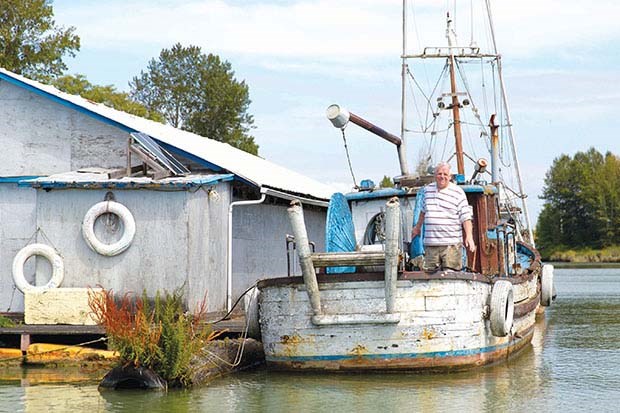A local volunteer group is working tirelessly to preserve elements of Delta's rich fishing heritage, but finding dollars to make it happen has been a challenge.
Formed three years ago and working closely with the Delta Museum and Archives, the Delta Fishing Heritage Committee has been exploring various avenues for the interpretation of the local fishing history to the public.
"The whole Fraser River waterfront is actually in need of recognition," said longtime resident Doug Massey, a committee member.
Fishing in the Fraser River Estuary played an important part in the settlement and development of Delta, attracting many newcomers from First Nations to numerous European immigrants, such as the large Greek community on Deas Island. The fishery at one time supported 14 canneries in Delta alone.
"We're trying to establish kiosks and interpretive centres whereby people will recognize that the shores of the Fraser River had an active fishing community. There was Japanese, Norwegian, Austrian, Greek and many more. You'd be surprised how many nationalities were involved," Massey said.
The committee had originally eyed the Delta-owned Seven Seas fish plant building or the old Brackman-Ker building on Chisholm Street as potential locations for historical displays or an interpretive centre. However, the Brackman-Ker building collapsed into the harbour, while the municipality has decided to try to sell off the Seven Seas site.
The committee is also looking for a permanent home for two old wooden fish boats - the Persian Fisher and Georgia Star - which were donated by local fishing families. The committee wants to consolidate the storage of the boats into a single, dry land location where they can be repaired and restored for public display. The Persia Fisher is currently in pretty good shape, stored in a local barn. The Georgia Star, however, is in the water at Ladner Harbour and looking in much rougher condition, requiring big dollars to restore.
"We haven't been able to find a place to store it. We don't have a whole lot of money and we are just a volunteer group that's been trying the best we can," Massey said.
The committee recently got support from Delta council to invite Port Metro Vancouver to support the concept of a Fraser River Estuary Interpretive Centre.
Council also endorsed the group's request to Metro Vancouver for the regional district to work with Delta to explore opportunities for recognizing Deas Island's strong historical connection with the Greek fishing community, although the municipality isn't committing any dollars.
Delta staff, meantime, have been directed to work with the committee to try and find a suitable venue for the fishing boats. A suggestion that the boats be on display at Wellington Point Park has already been shot down by the committee due to the site's relative remoteness and concerns about potential vandalism.
Massey, 80, noted a new linear park that is to be established on the shores of Marina Gardens Estate could be an ideal location for displaying some larger artifacts and kiosks A few weeks ago, Delta's Heritage Advisory Committee met with Massey and fishing heritage committee members to discuss some of the challenges including funding. It was suggested at that meeting that there be some preliminary discussion with Gateway regarding an interpretative site with kiosks, as well as talk with First Nations regarding the St. Mungo cannery site further up river. The loss of some of Delta's heritage as a result of the South Fraser Perimeter Road highway project was also noted as something that could play a role in establishing an interpretive centre as compensation.
He noted that the SFPR has isolated the important historical sites at the Glenrose, St. Mungo and Annieville canneries, sites that need recognition of the settlers who worked there.



